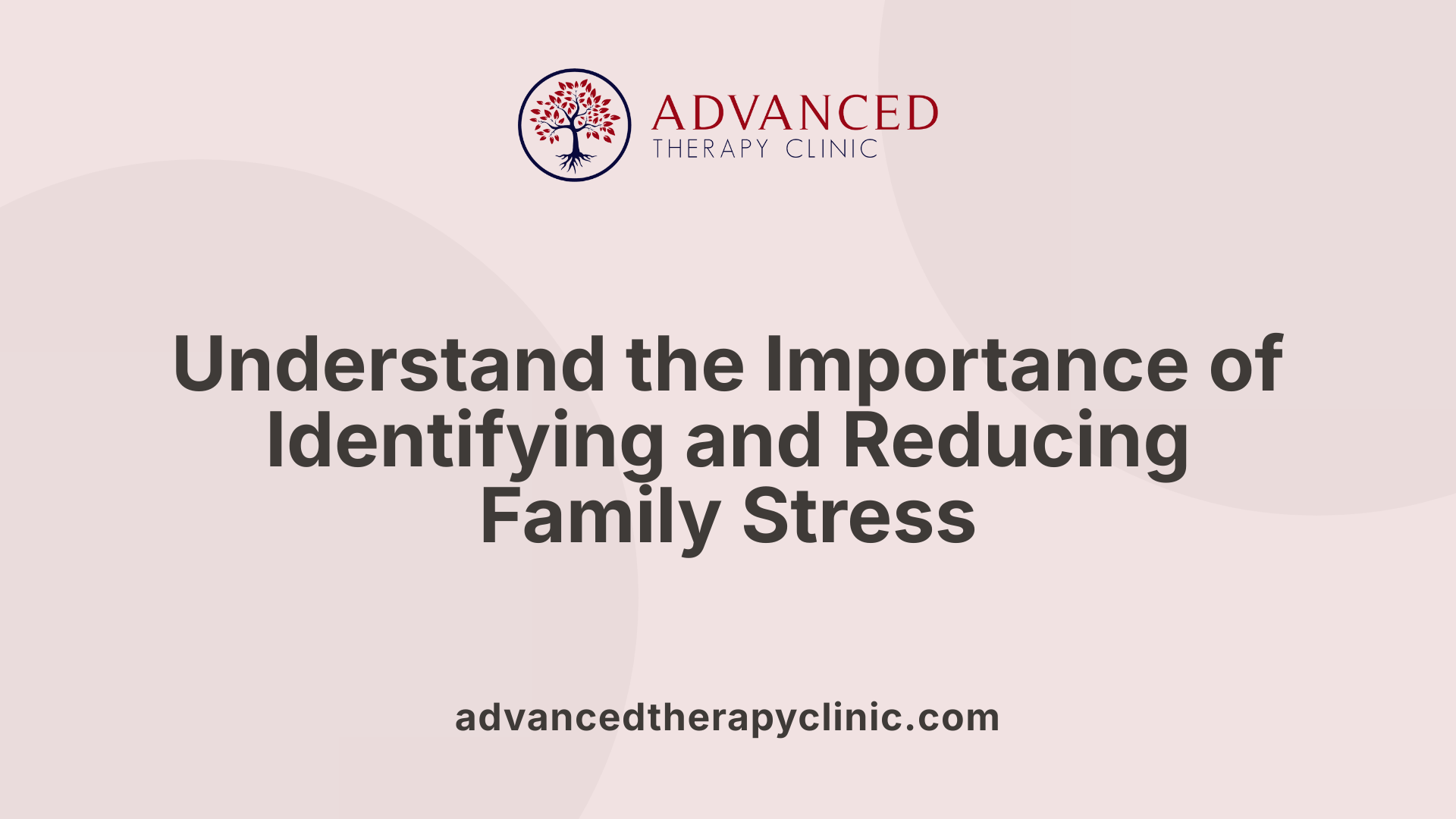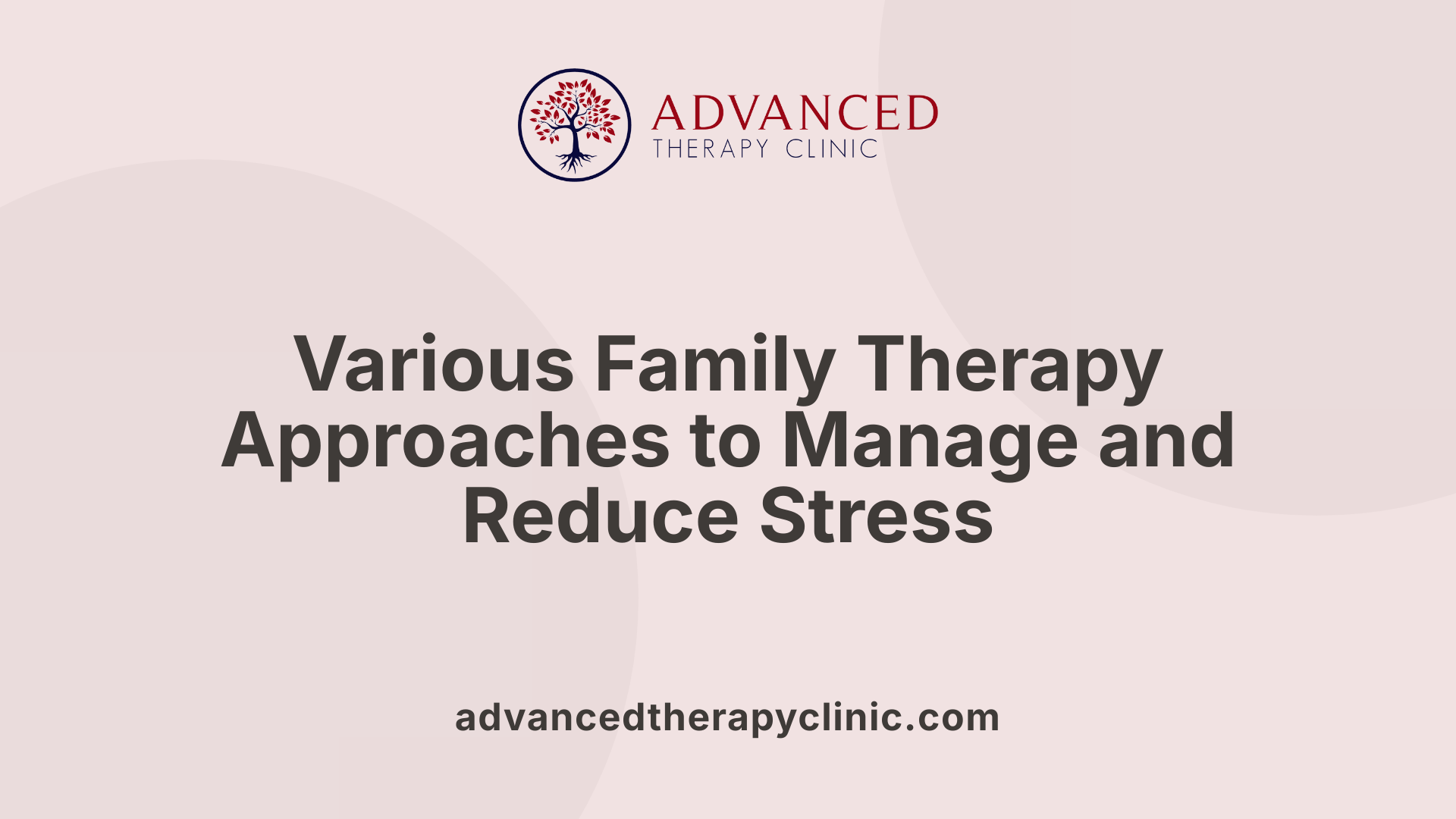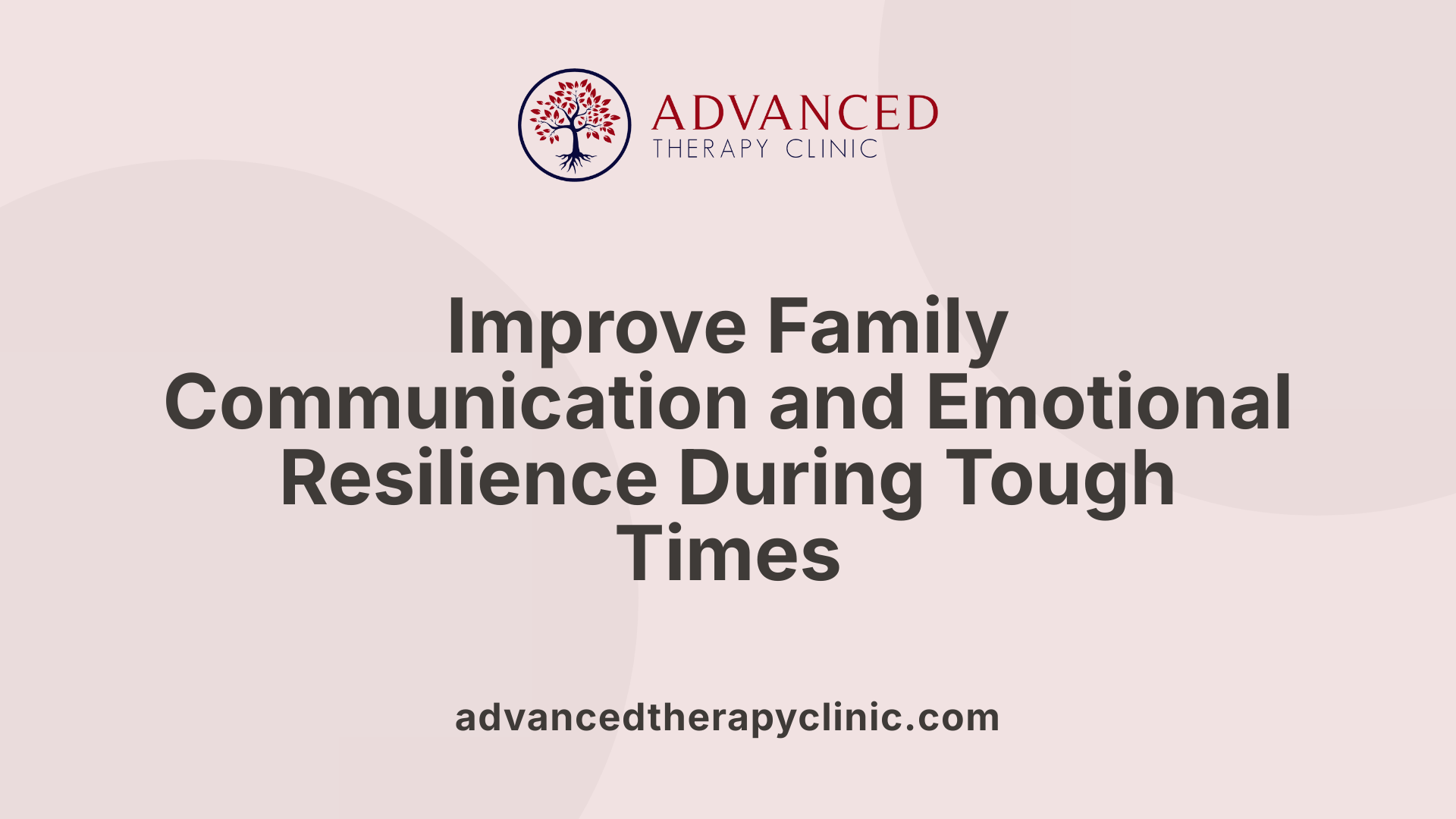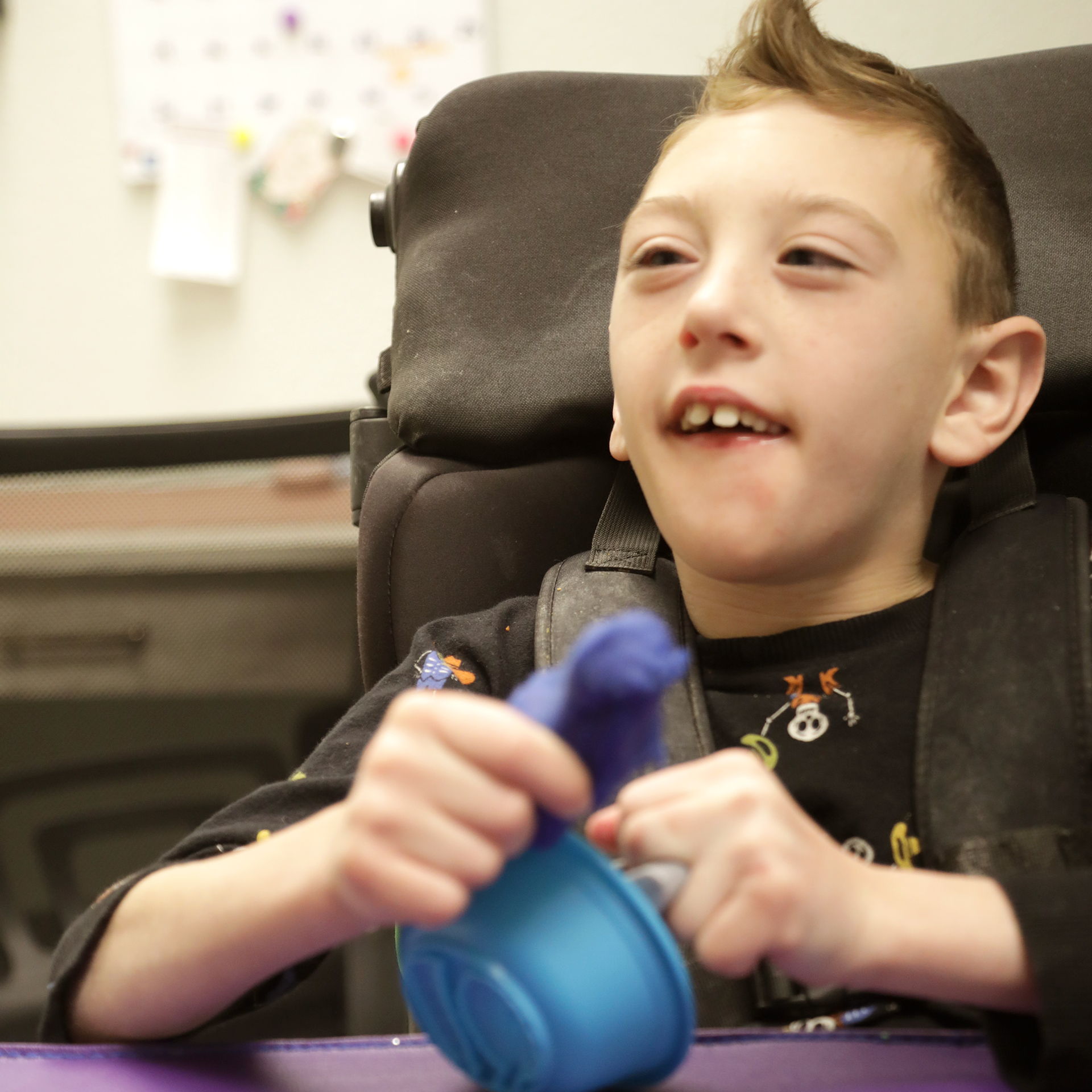The Benefits of Family Counseling in Managing Stress


Understanding the Power of Family Counseling
Family counseling emerges as a vital resource for managing stress by fostering enhanced communication, understanding, and emotional support among family members. It provides a structured environment where families can openly explore their challenges, develop resilience, and build healthier relationships, especially during times of crisis or transition.
How Family Counseling Manages and Reduces Family Stress

How does family counseling help manage and reduce stress within families?
Family counseling plays a vital role in alleviating stress by fostering better communication and understanding among family members. It creates a safe and open environment where individuals can express their feelings and concerns without fear of judgment. This shared space helps reduce feelings of isolation, resolve conflicts, and strengthen emotional bonds.
Improved communication skills are at the core of family therapy. Therapists teach families how to articulate their emotions clearly, listen actively, and resolve disagreements constructively. These skills enable families to address issues proactively, instead of letting conflicts escalate.
Promoting mutual understanding among different generations and individual members leads to a more cooperative household. When families understand each other's perspectives, it reduces misunderstandings and resentment, which are common sources of stress.
Family therapy also emphasizes coping strategies tailored to each family's needs. Techniques such as problem-solving exercises, conflict resolution skills, and psychoeducation about stress help families develop resilience.
Incorporating healthy habits further enhances stress management. Therapists often encourage practices like relaxation exercises, mindfulness, and routine-setting to help family members manage their emotional responses more effectively.
Overall, family counseling strengthens family bonds and equips members with tools to adapt to life’s challenges. By addressing emotional, psychological, and behavioral stressors collectively, families can foster a supportive environment where all members feel valued and understood, leading to healthier and more resilient family dynamics.
The Significance of Recognizing and Alleviating Family Stress

Why is understanding family stress important, and how can counseling help alleviate it?
Recognizing family stress is vital because it directly influences the emotional and physical well-being of all family members. When stress remains unaddressed, it can lead to emotional issues like anxiety and depression, as well as physical health problems such as hypertension and diabetes.
Family counseling offers a supportive platform to identify the root causes of stress. It helps families understand how communication breakdowns, unresolved conflicts, or life transitions contribute to ongoing tension.
Through therapy, family members learn to articulate their feelings constructively and develop healthier interactions. These approaches foster empathy, improve problem-solving skills, and promote cooperative coping strategies.
Counseling also provides practical tools for managing stress, such as active listening, setting healthy boundaries, and employing emotional regulation techniques. Utilizing assessment methods like eco-maps, family environment scales, and therapy models helps professionals gauge the family dynamics and tailor interventions effectively.
The combined effect of understanding family stress and applying targeted counseling interventions enhances resilience, supports mental health, and creates a more harmonious household environment. This holistic approach empowers families to navigate life's challenges more resiliently, ultimately leading to improved overall well-being.
Benefits of Family Therapy in Reducing Stress and Enhancing Well-being

What are the benefits of family therapy for stress relief?
Family therapy provides significant advantages for managing stress within families. One of its primary benefits is improving communication. Therapists teach family members how to express their feelings and concerns in a constructive way, which helps bridge gaps and fosters empathy.
Enhanced understanding among family members reduces misunderstandings and decreases potential conflicts. When families understand each other better, tension and resentment are less likely to build up, creating a calmer, more supportive environment.
Family therapy also addresses systemic issues and recurring patterns that contribute to stress. By examining family dynamics, therapy can uncover unhealthy behavioral cycles, such as irritability, withdrawal, or conflict, and work towards replacing them with healthier interactions. This not only relieves immediate stress but also promotes long-term resilience.
In addition, therapy equips families with practical problem-solving and conflict resolution skills. These tools help family members resolve disagreements more effectively and handle ongoing challenges such as financial difficulties, health issues, or major life transitions.
Building stronger emotional bonds is another crucial aspect. Family therapy provides a safe space where members can validate each other's feelings, promoting trust and emotional support. This emotional connectivity fortifies families against future stressors.
Overall, engaging in family therapy enhances emotional well-being, improves physical health, and fosters resilience. Families become better prepared to face life's challenges together, reducing stress and increasing overall happiness.
Approaches and Techniques in Family Counseling for Stress Management

What techniques and approaches are used in family counseling to address stress?
Family counseling offers a range of methods aimed at reducing stress by improving communication, emotional understanding, and resilience within the family unit. Various therapeutic models are employed to target specific relational dynamics, and practical techniques help family members manage their reactions and interactions.
One prominent approach is Structural Family Therapy, which focuses on reorganizing family interactions. Therapists work to establish clear boundaries and hierarchies, fostering a supportive environment where roles are defined and respected. This creates a stable foundation that allows families to handle stress more effectively.
Another widely used model is Bowenian Family Therapy, which emphasizes differentiation from family origins and understanding intergenerational influences. Utilizing tools like genograms, therapists help family members recognize patterns that contribute to stress and conflict. Increasing awareness of these influences promotes healthier boundaries and emotional independence.
Strategic Therapy takes a problem-solving perspective, aiming to modify destructive interaction patterns through targeted behavioral strategies. Families might undertake homework assignments or behavioral experiments designed to break unhealthy cycles and promote positive communication.
In addition to these models, specific techniques such as active listening encourage family members to genuinely understand each other's perspectives. Emotional validation helps individuals feel heard and respected, reducing misunderstandings that can cause stress.
Mindfulness practices and emotional regulation methods are also integral. These techniques teach family members to remain present and calm during conflicts, fostering stability and reducing emotional reactivity.
By combining these approaches and techniques, family counseling develops a supportive, empathetic environment. This environment not only helps resolve current conflicts but also equips families with ongoing coping skills to navigate future stressors effectively.
| Approach/Technique | Focus | Purpose | Example |
|---|---|---|---|
| Structural Family Therapy | Boundaries and hierarchies | Establish healthy family structure | Reorganizing roles in a conflict situation |
| Bowenian Family Therapy | Generational influences | Increase differentiation and understanding | Creating genograms to trace family patterns |
| Strategic Therapy | Behavior modification | Change maladaptive interaction patterns | Assigning specific tasks for conflict resolution |
| Active Listening | Communication skills | Foster understanding and empathy | Reflecting feelings during a family discussion |
| Emotional Validation | Emotional connection | Reduce feelings of isolation | Validating a family member's feelings of stress |
| Mindfulness and Emotional Regulation | Presence and control | Manage emotional reactions | Breathing exercises during heated moments |
Overall, these methods serve to build healthier communication channels, strengthen family bonds, and develop effective stress management tools, leading to more resilient familial relationships.
Different Family Therapy Models for Addressing Stress

What are the different types of family therapy approaches used for stress management?
Family therapy offers various approaches tailored to address conflicts, improve communication, and reduce stress within families. Understanding the specific model can help families choose the most suitable intervention for their needs.
One prominent approach is Structural Family Therapy. This method focuses on reorganizing family roles, boundaries, and hierarchies to promote healthier interactions. It aims to clarify roles and establish clear boundaries, which can reduce confusion and conflict.
Strategic Family Therapy is short-term and goal-oriented. It employs specific interventions and homework assignments designed to change maladaptive patterns that contribute to family stress. This approach emphasizes direct problem-solving and often involves prescribing tasks to encourage behavior change.
Systemic Family Therapy considers the wider social and cultural contexts influencing family dynamics. It addresses external factors like community, cultural expectations, or social stressors that impact family members and their relationships.
Another valuable approach is Functional Family Therapy (FFT). Focused on behavioral issues, FFT seeks to improve communication and parenting skills. By strengthening family interactions and establishing positive behavior patterns, it helps reduce overall family stress.
Emotionally Focused Therapy (EFT) centers on fostering emotional bonds and resolving underlying emotional conflicts. It aims to build secure attachments, which can significantly lower familial stress levels.
Additionally, Transgenerational and Bowenian approaches look at how family patterns and unresolved issues from previous generations influence current dynamics. These therapies help family members understand and break cycles that may cause ongoing stress.
Each of these models provides targeted tools for managing family stress, ultimately fostering healthier relationships and more resilient family systems.
Enhancing Communication and Emotional Well-being Amidst Stressful Times

How does family therapy improve communication and emotional well-being during stressful times?
Family therapy plays a vital role in helping families thrive amidst life's challenges by improving communication and emotional health. It offers a safe and structured environment where family members can openly share their feelings and concerns without fear. This setting encourages honesty, understanding, and empathy, which are crucial during stressful periods.
One of the core techniques used in therapy is active listening, where family members learn to listen attentively and respond reflectively. This method helps clarify misunderstandings and promotes a deeper emotional connection. Role-playing exercises are also common, allowing members to practice expressing themselves and viewing situations from each other's perspectives.
Therapists teach the use of 'I' statements to help individuals articulate their feelings clearly and assertively, reducing defensive responses and fostering respectful dialogue. Emotional validation is emphasized, helping family members feel heard and respected, which strengthens trust and intimacy.
Addressing underlying conflicts is another important aspect. By identifying patterns of irritability, withdrawal, or conflict, therapy guides families to replace negative interactions with healthier ones, ultimately fostering a more supportive environment.
During major life transitions, such as divorce, moving, or illness, family therapy equips members with strategies to adapt effectively. Establishing healthy boundaries and promoting emotional resilience are emphasized to help families cope better with change.
In summary, family therapy enhances both communication and emotional well-being by teaching families how to express themselves constructively, listen actively, validate each other's feelings, and adapt to life's stresses. These improvements lead to stronger bonds, greater trust, and a more supportive family environment, enabling families to navigate stress more effectively.
Towards Resilient Families
Family counseling serves as a cornerstone of mental health and relational stability, especially during challenging times. By promoting healthier communication, resolving conflicts, and fostering empathy, family therapy helps families develop robust coping mechanisms and resilience. As they navigate life’s inevitable changes—be it illness, loss, or transition—families equipped with the skills learned through counseling are better positioned to maintain emotional well-being and unity. Ultimately, investing in family therapy is an investment in the emotional health and resilience of the entire family unit, fostering a supportive environment where each member can thrive amidst life's stressors.
References
- Managing stress in your daily life: how family therapy can help
- What Are the Benefits of Family Counseling?
- Benefits of Family Counseling and How It Works
- The Benefits Of Family Counseling And How It Works For Mental ...
- How Family Therapy Can Benefit Your Child - UPMC HealthBeat
- How Family Therapy Can Help You Cope with Major Life Changes
- Reducing Stress through Family Counseling - Number Analytics
- The Benefits of Family Therapy - Lifestance Health
- Family Therapy: What It Is, Techniques & Types - Cleveland Clinic
Recent articles

Celebrating Small Wins: How Therapy Helps Kids Build Confidence All Year Long
Learn why small wins in therapy matter, how they boost your child’s confidence, and simple ways families can celebrate progress all year long.

Empowering Missoula Children to Grow With Confidence and Connection
Learn how ABA therapy in Missoula helps children build communication, independence, and confidence through personalized, family‑centered support at Advanced Therapy Clinic.

Compassionate Pediatric Therapy in Butte, Montana
A welcoming place where every child’s potential is celebrated

How Pediatric Therapy Helps Kids Thrive across Montana and Wyoming
A supportive guide for families exploring therapy options in Billings, Butte, Missoula or Sheridan.

How to Choose the Right Pediatric Therapy Clinic in Billings, Montana
A Parent‑Friendly Guide To Finding The Best Support For Your Child

Expressive Speech Delay 2-Year-Old
Understanding and Addressing Expressive Speech Delay in Toddlers

